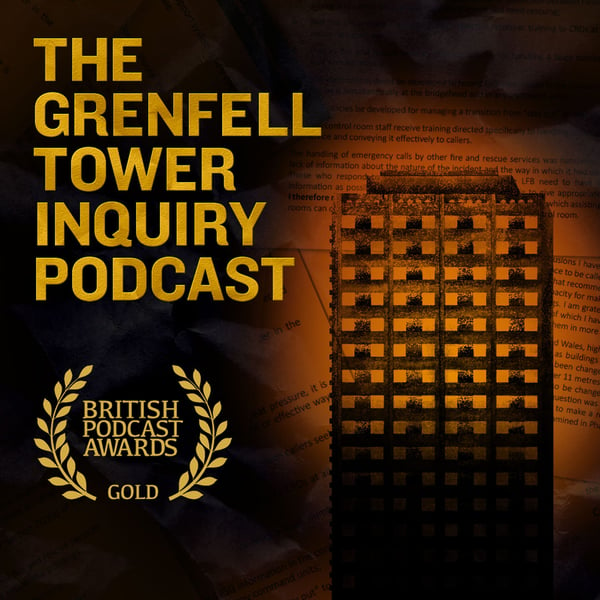173 Module 3 Closing Statements and Module 6 Opening Statements
The Grenfell Tower Inquiry Podcast
BBC
4.8 • 627 Ratings
🗓️ 29 October 2021
⏱️ 35 minutes
🧾️ Download transcript
Summary
This week the inquiry saw the closing of one module and the beginning of another.
The opening statements for module six looked at how local and national policies guided the work of firefighters on the night of the fire.
In the closing statements for module three, we heard about how the Royal Borough of Kensington and Chelsea and the Tenant Management Organisation carried out their duties regarding Grenfell Tower.
Presenter / Producer: Kate Lamble Producer: Sharon Hemans Researchers: May Cameron and Nathan Gower Studio Mix: Gareth Jones Editor: Hugh Levinson
Transcript
Click on a timestamp to play from that location
| 0:00.0 | Hello and welcome to the Grenfell Tower Inquiry podcast with me Kate Lamble. |
| 0:09.6 | This week, the inquiry heard two sets of legal statements, one closing, one opening. |
| 0:15.0 | What the inquiry is about to move on to, though, is important. |
| 0:18.2 | Because more than four years since the Grenfell Tower fire, |
| 0:21.6 | it will now ask questions about how central government set regulations and policies which underpinned |
| 0:26.9 | everything we've heard about so far. I'll come to the closing statements which wrapped up one section |
| 0:32.9 | of evidence later in the programme, but I want to start with this new section of the inquiry. It will be |
| 0:38.4 | investigating how national policies were set on a number of issues, including building regulations, |
| 0:44.1 | the certification of materials and fire risk assessments. But it's beginning by looking at how |
| 0:49.3 | local and national policies guided the work of firefighters. That in particular is what these opening |
| 0:55.6 | statements relate to. Danny Friedman represents one group of bereaved survivors and residents. He said |
| 1:01.7 | the inquiry needed to go back to 2004 to see where the challenges facing the London Fire Brigade |
| 1:07.0 | began. New Labour wants to set national standards to encourage modernisation and value for money. |
| 1:13.6 | Danny Friedman said the then government introduced legislation which abolished the Central |
| 1:18.3 | Fire Brigade Advisory Council. Instead, in England and Wales, decisions were now to be made |
| 1:23.2 | by individual local authorities rather than central government. |
| 1:26.5 | What it essentially introduced was a policy of localism. |
| 1:30.3 | That, he argued, had a detrimental impact on the LFB. |
| 1:34.1 | The effect of localism was to transfer the difficult political decisions over the future |
| 1:39.6 | of the service onto local governments and chief officers, who certainly in London have substantially |
| 1:45.5 | yielded to pressure to keep things the way they are. The root cause of the LFB's incompetent |
| 1:50.5 | respondent-Grenfell Tower can therefore be traced back to the problems identified in the reviews |
... |
Please login to see the full transcript.
Disclaimer: The podcast and artwork embedded on this page are from BBC, and are the property of its owner and not affiliated with or endorsed by Tapesearch.
Generated transcripts are the property of BBC and are distributed freely under the Fair Use doctrine. Transcripts generated by Tapesearch are not guaranteed to be accurate.
Copyright © Tapesearch 2025.

